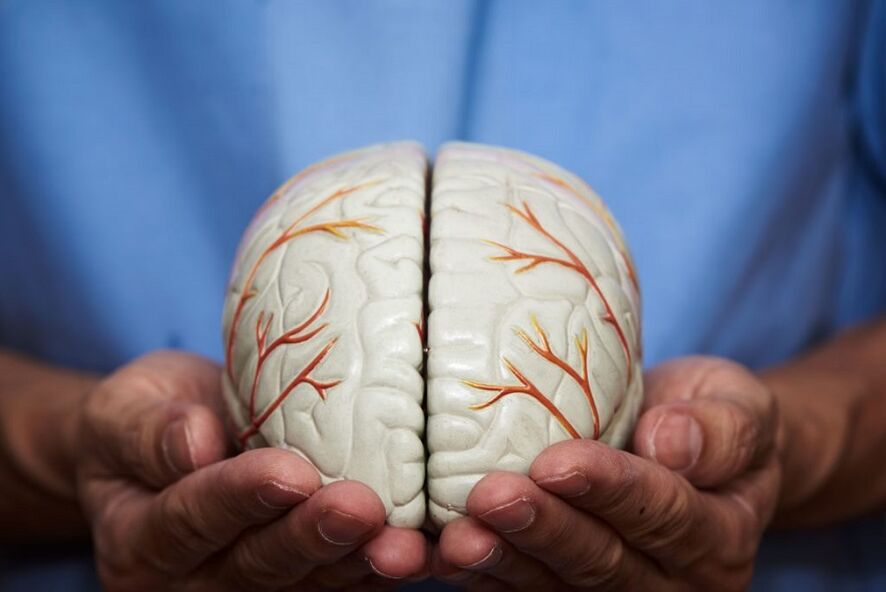
Everyone knows that getting rid of alcohol addiction and stopping drinking is very difficult, and for many it is almost impossible. He holds the drinking of alcohol tightly in his tough hands. Overcoming psychological addiction controlled by your own brain is a difficult task because in most cases the brain does not obey you, but your body does obey the brain. The body wants to drink water, and you will be looking for water. The body wants to eat, it sends a signal to the brain and it controls you and looks for food. And the brain wants a dose of alcohol, and you really want to drink. So why is there in our body, and indeed in our brain, the desire to drink an alcoholic beverage?
Why does the brain want to drink alcohol?
Here we have to look for when the connection between the brain and drinking begins. Everyone can find that the beginning of human alcohol consumption is primarily associated with good and bright events - holidays, weddings, birthdays and corporate parties. And when you remember all of those holidays, remember what it means that your brain only remembers joy, fun and good humor. If bad happened from overdrinking, it happened the next day and there is always an excuse for it - they say, drunk, who it doesn't happen to, but it was fun.
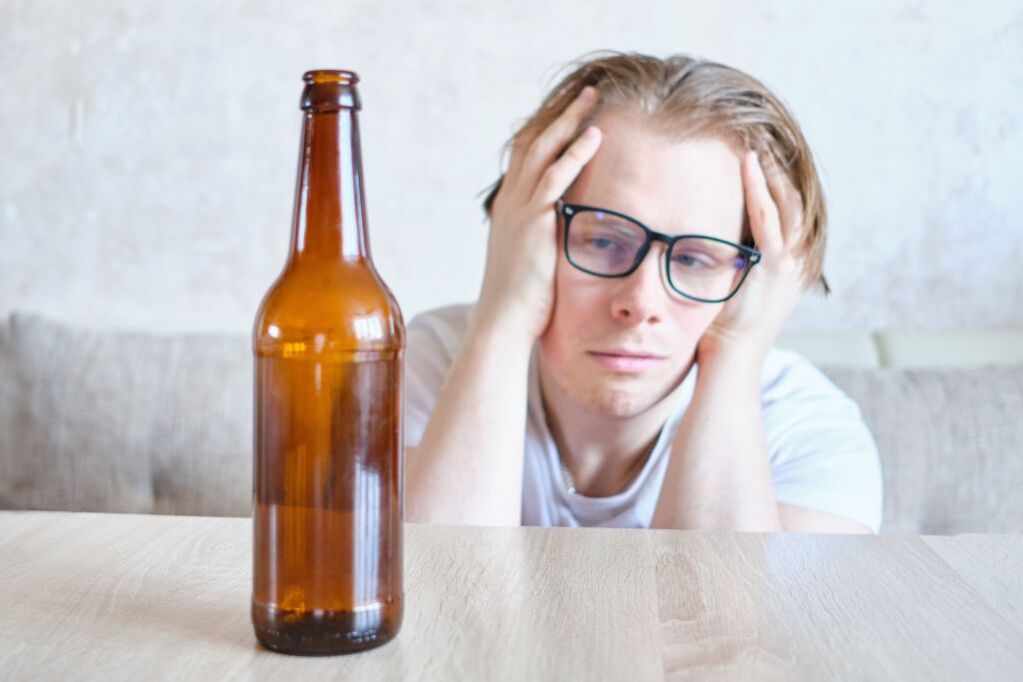
Many also notice that after a hard day at work, drinking a glass, another type of alcohol or even a light beer drink such as beer, immediately followed by stress relief, a good mood comes and tiredness subsides. Experts explain this with the fact that alcohol actually belongs to the group of narcotics and that the World Health Organization equated alcohol with a drug in 1975. When it enters our brain, and there are practically no barriers to entry in our bodies, it affects dopamine neurons that get excited and start producing dopamine, actually the hormone of happiness and joy. The brain senses the onset of this period and begins to associate it with alcohol consumption, which actually leads to the formation of a strong, stable positive psychological connection between alcohol consumption and the brain. Then, to get the same "pleasure", you need to drink more, then more often, as the sensitivity of the dopamine receptors becomes more and more dull. And indeed, a person flows smoothly into the second phase of alcoholism, unless there is only a psychological connection, but also a physiological dependence on alcohol consumption that requires immediate treatment for alcohol addiction.
How can you stop drinking?
Hence, those who understand their "future" of where their lives are headed with frequent drinking and who want to get rid of this growing addiction must actually struggle against the brain itself, which is beginning to have a stable psychological connection, and the need to drink alcoholto get some then bright, quick "joyful" moments in life after drinking.
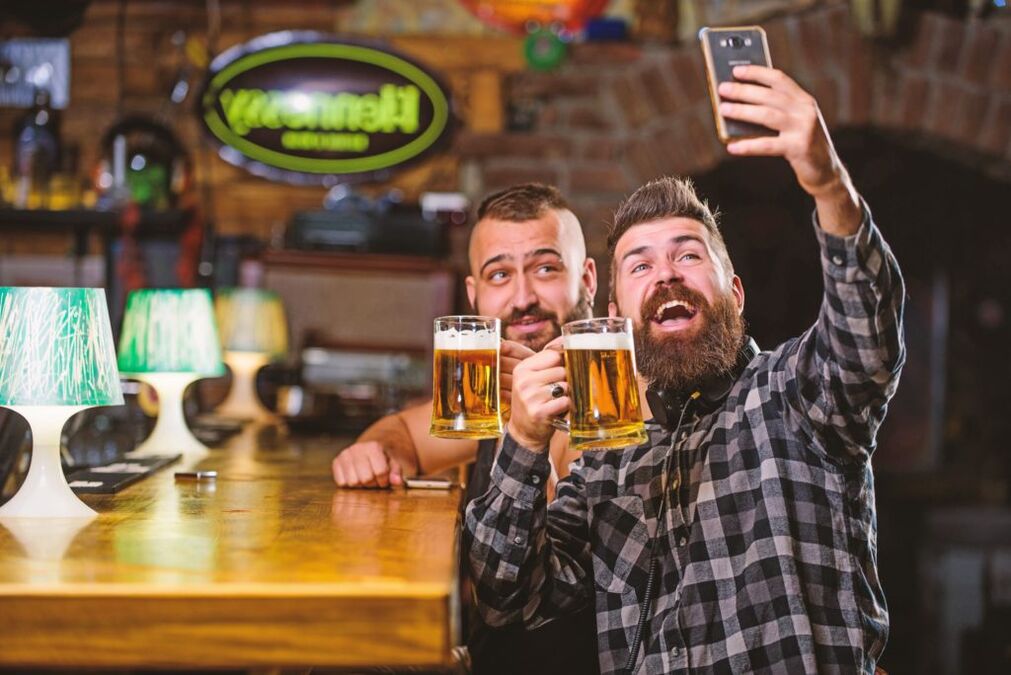
Step 1 - It is necessary to realize that the brain is actually our worst enemy!
All problems we face arise first in their depths (fear, fear, reluctance), this is the work of the brain. It creates obstacles for us, creates difficulties, forms habits and prevents us from dealing with them.
When we drink alcohol, we get a large amount of dopamine released by the brain through contact with alcohol, a neurotransmitter responsible for joy, euphoria and pleasure in the brain. This number is so large that it overshadows even the most joyful moments of our lives. This "undeserved" stream of joy and pleasure comes precisely from the effects of alcohol on the brain. After getting "cheap" pleasure from alcohol and developing a strong bond with it, he tries to achieve something like, "I want more joys like that, I want more joy this quick, I want to get the stress out of life quickly" inthe easiest way is to drink alcohol without trying to solve the accumulated difficult tasks and then enjoying their solution.
Step 2 - Desire is the root of all beginnings!
Only desire can completely rebuild your brain and create the right order in it. Only the desire to get more "difficult" joy, more "difficult" joy, deserves after a lot of exertion, and not only - I've been drinking and "I feel good, and I don't care about anything. " Only the desire, realReceiving "deserved" pleasure disrupts the brain's desire to quickly receive "light" pleasure here and now. Since you declared war on your brain as soon as you had made the decision to give up alcohol, you formed an order in your head for other "work desires" and took the direction of sobriety.
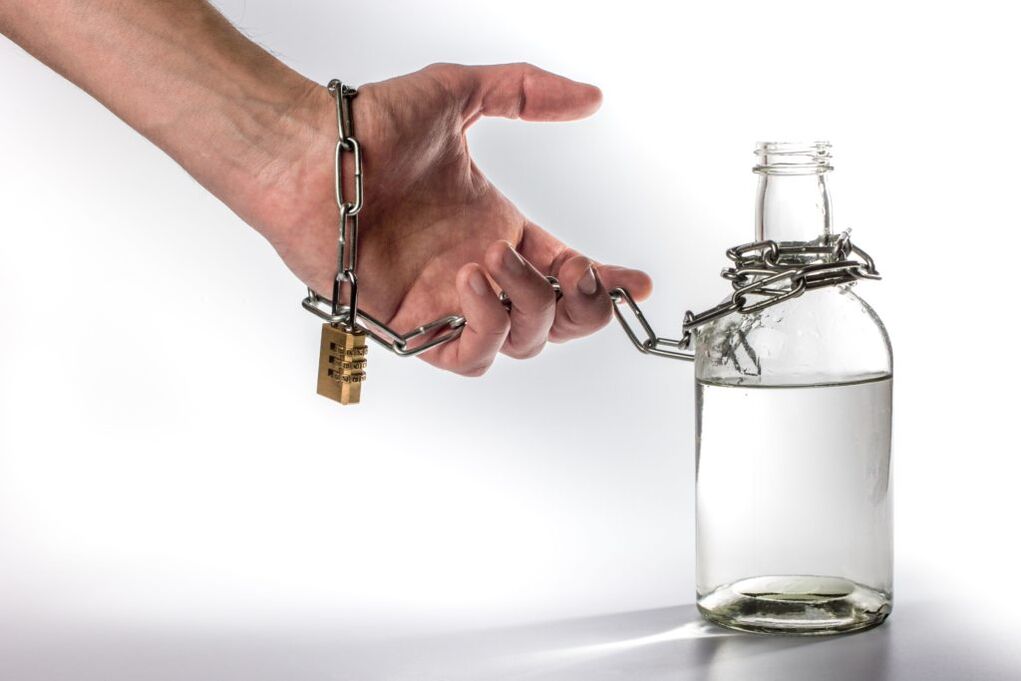
Step 3 - just stop! Not starting again is difficult!
Don't start over. . . Sometimes it is disastrous! That is why giving up addiction is always a war. The brain ignites a keen desire to accept something and removes all barriers to it. Your will is the only obstacle to drinking alcohol.
Ethanol (alcohol) is a powerful stimulant of joy and euphoria in the brain. When you stop drinking you will likely start to think how nice it would be to have a beer, vodka, or brandy right now. To remember alcohol as a pleasant event, but otherwise the brain will not remember alcohol, which gives it a lot of joy and euphoria, and all of this at once, you will not be able to resist the urge to drink again. This is where you either need to be able to view alcohol as a bad event or be coded. Alcohol coding will help relive that moment of desire and allow time for the opportunity to turn negative from drinking.
4 step - won't take long!
Therefore, this wish must be evaluated. . . Rate on a 10 point scale. How strong the desire is (like a typhoon or like a storm). The Libra rarely reaches a strong 10-point thirst when recognizing the desire. Therefore, based on the results of consciousness, it is necessary to shift this non-strong urge to other types of activity.
Begin receiving simple natural human joys from life, work, family, hobbies, and communication with other people. Never drink alcohol or you will have to start over.
The more varied your new conversation, the faster the brain will adapt to low normal dopamine levels, and as we recall, alcohol increases dopamine levels in the body dramatically and artificially many times over.
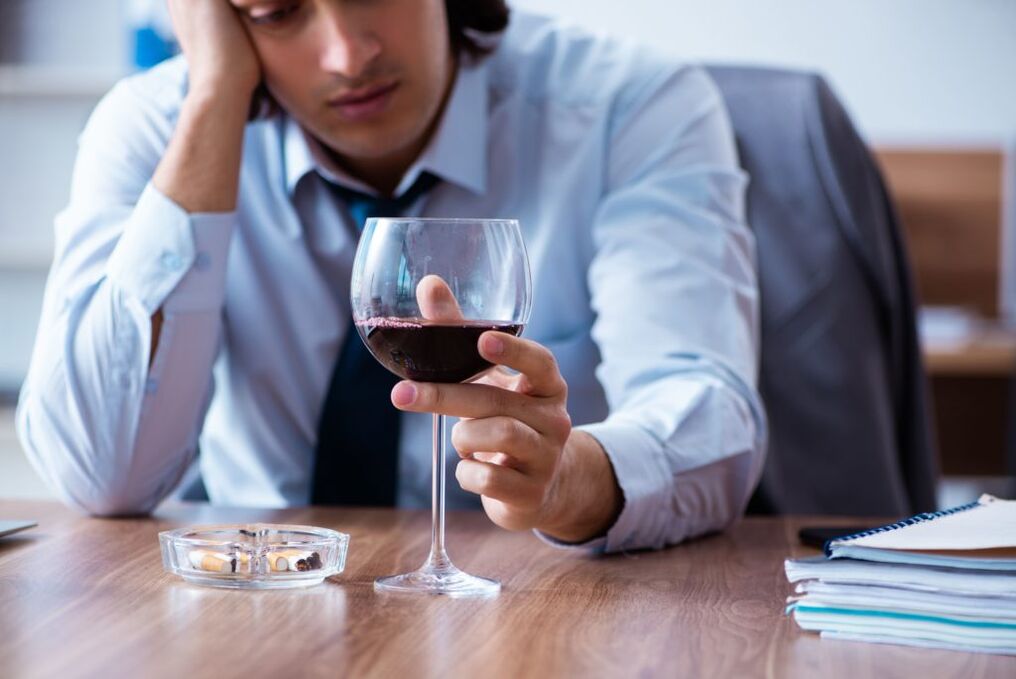
Step 5 - Just Throw Alcohol!
We do not recommend quitting and quitting smoking or eating your favorite foods at the same time. Doing this at the same time increases the risk of breakdown many times, as the brain experiences a lot more stress in giving up everything than if it gives up some of the habits or addictions. First, you can keep the rest of your bad habits.
So if you decide to stop drinking, then stop drinking. If quitting smoking is more important to you, then just quit smoking. By dropping it all at once, you won't be able to resist the double or triple temptation. And if you break down while smoking, for example, you will most likely break down giving up alcohol.
Step 6 - don't lose yourself!
Week 1 has the most difficult moments of quitting. Fear, fear, increased desire. Here it is, whatever you may say, very difficult to cope with without medication. Once you understand that it will only get worse, it is better to see your doctor. There are drugs that really reduce the urge to drink alcohol, reduce stress, and relieve discomfort.
In such cases, we strongly recommend that you contact the doctors at the drug treatment center. They will help you choose the right life cycle regimen to stop drinking. Deliver medicines and optimally selected vitamins and minerals that the body needs. Take control of your wellbeing with the latest medical equipment.
After all, the most important thing is not to tear yourself away and start drinking again.
Step 7 - you need support!
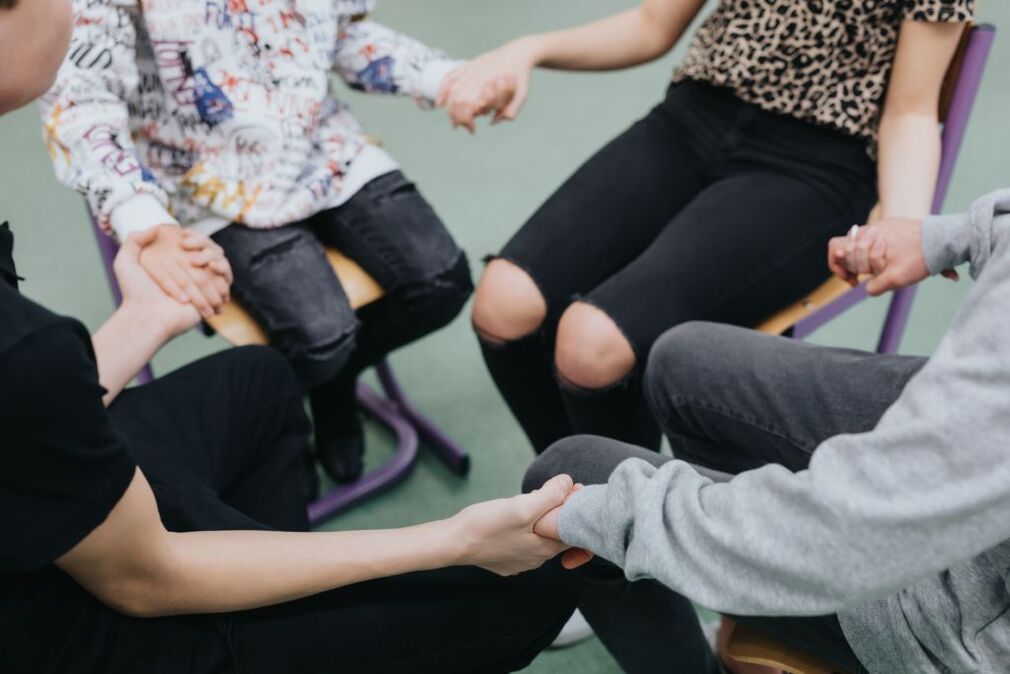
You can always contact the Alcoholics Anonymous group for support. If we discard all convention and unwillingness, then it is obvious that people can help one another. Without support, we are practically helpless in everyday life. If you do not want to join the Alcoholics Anonymous group, you have the option of contacting the psychological counseling service.
Step 8 - burn the adrenaline!
Due to the sharp increase in the amount of adrenaline in the blood as a result of refusal to drink alcohol, it must be burned. Burning adrenaline without harming others is only possible through physical activity. As with anything in our life, you need to start gradually. It is better if there is an opportunity to work out in the gym. If not, then take short walks in the open air or jogging.

If you give up alcohol, go for more walks, meet friends, and take active rest.
By engaging in exercise, you not only help burn adrenaline but also strengthen your muscles, nervous system, health, and give your brain new tactile and physical sensations that force it to be distracted by thoughts of alcohol. Such additional "work" for the brain has a positive effect on movement on the path of sobriety and an active sober life.

Go and travel more with a complete rejection of alcoholic beverages.
Go hiking, travel where the brain has nowhere to hide with its thoughts about alcohol. Repel and burn old memories of pleasant drinking with new impressions.
Step 9 - You Will Be Successful! Do not doubt!
It is important to resist: sleep, diet, try to be in the mood and in the mood for positive things. By the way, this applies to all people, since we are all dependent on something. That is why the cure is so important to achieve a positive result. only the regime can prepare us to fight (first of all with ourselves)

Step 10 - try to be happy!
Being sober after drinking alcohol is boring enough. The world around us no longer pleases with colors and events because they lack the strength to interrupt the euphoric state of alcohol intoxication. This boredom is also a product of our brains. Therefore, you need to constantly look for yourself: a new hobby, interest, lust. Happiness is a product of our brain (as is fear). The brain can be customized and it's up to you.
Popular questions about alcohol and the answers to it
Every time I stop drinking and I can't hold back - do I start again, what should I do?
It is very difficult to stop drinking alcohol. The neural connections created in the brain between a positive idea of drinking alcohol and the receipt of joy, pleasure and euphoria from it cannot simply be destroyed without a fight. Alcohol belongs to the substance group of narcotics and will not drive its effects on the body out of the body without great work, perseverance and willpower.
If you don't have enough willpower to resist alcohol, consider programming to stop drinking.
If you are full of stamina and strength to fight alcohol addiction, then:
- Do not give up.
- Try to fool your brain because it is the main guide of your body. Badly consider alcohol a toxic substance, just remember bad experiences with drinking. Think of it as an extremely dangerous substance and drink it with disgust, keep strong alcohol in your mouth especially to experience problems. Do everything on purpose to make you uncomfortable drinking alcohol.
- Start drinking alcohol in very small doses. Just a little sip. Be persistent in this.
- For all alcoholic suggestions, translate your desire into the soft drinks you like best and drink instead of alcohol for pleasure only.
With all your knowledge and tricks, try to resist alcohol addiction. Remember that alcohol controls your brain.
Could Alcohol Coding Be Part of Alcohol Addiction Treatment?
Coding is often incorporated into the course of treatment to allow the patient to live the coding time without alcohol. During this time, you can usually improve your alcoholic health, rebuild family and work relationships if they are injured due to alcohol addiction, and recover morally and physically.
Can a person drink alcohol and not be an alcoholic?
Sure it can. There are a lot of people like that. They are aware of the dangers of drinking in large quantities and do not get drunk "in the trash", oversleep work, argue with their wife, ruin her health, and create a host of other problems. Even the most resilient to alcohol addiction, if they drink a lot of alcohol almost every day, they will quickly develop the habit of drinking alcoholic beverages. And when you consider that alcohol belongs to the group of narcotics approved by the World Health Organization in 1975, then alcohol addiction will most likely affect almost anyone who drinks alcohol a lot and often. Therefore, only drink alcohol in a limited amount that does not lead to addiction.


























